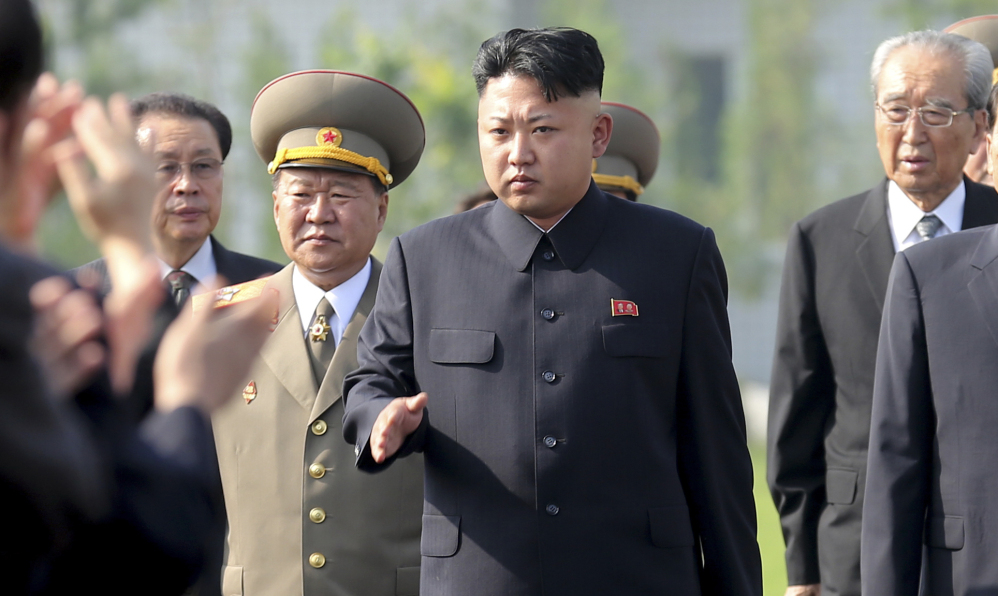SEOUL, South Korea — South Korea’s spy agency said Tuesday it has solved the mystery of North Korean leader Kim Jong Un’s 6-week public absence, which set off a frenzy of wild speculation around the world.
The National Intelligence Service told legislators that a foreign doctor operated on Kim in September or October to remove a cyst from his right ankle, according to Park Byeong-seok, an aide for opposition lawmaker Shin Kyung-min. The aide said the spy agency also told lawmakers in a closed-door briefing that the cyst could recur because of Kim’s obesity, smoking and heavy public schedule.
After last being seen in state media on Sept. 3, Kim reappeared on Oct. 14 hobbling with a cane, but smiling and looking thinner.
Lim Dae-seong, an aide to ruling party lawmaker Lee Cheol-woo, who also attended the briefing, said the spy agency identified Kim’s condition as tarsal tunnel syndrome.
The syndrome, which is often painful, is caused by the compression of a nerve, sometimes because of a cyst. Surgery is generally seen as a last resort after other treatments are unsuccessful. No weight should be put on the foot for 10 days after an operation, and an improvement in symptoms may take two to three months, according to the website of the NYU Langone Medical Center’s Department of Neurosurgery.
The agency also told the lawmakers that North Korea has expanded five of its political prisoner camps, including the Yodok camp, which was relocated to the northwest city of Kilchu, Lim said. The spy agency believes the camps hold about 100,000 prisoners, he said.
Lim said the agency also believes that North Korea recently used a firing squad to execute several people who had been close to Kim Jong Un’s uncle, Jang Song Thaek, who was considered the country’s No. 2 power before his sudden purge and execution in December 2013.
In an intelligence success, South Korea’s spy agency correctly said that Jang had likely been dismissed from his posts before North Korea officially announced his arrest.
However, it received heavy criticism when its director acknowledged that it had ignored intelligence indicating North Korea’s impending shelling of a South Korean island in 2010. It also came under fire because of reports that it only learned of the 2011 death of then leader Kim Jong Il, the father of Kim Jong Un, more than two days after it occurred when state media announced it.
Copy the Story LinkSend questions/comments to the editors.



Success. Please wait for the page to reload. If the page does not reload within 5 seconds, please refresh the page.
Enter your email and password to access comments.
Hi, to comment on stories you must . This profile is in addition to your subscription and website login.
Already have a commenting profile? .
Invalid username/password.
Please check your email to confirm and complete your registration.
Only subscribers are eligible to post comments. Please subscribe or login first for digital access. Here’s why.
Use the form below to reset your password. When you've submitted your account email, we will send an email with a reset code.